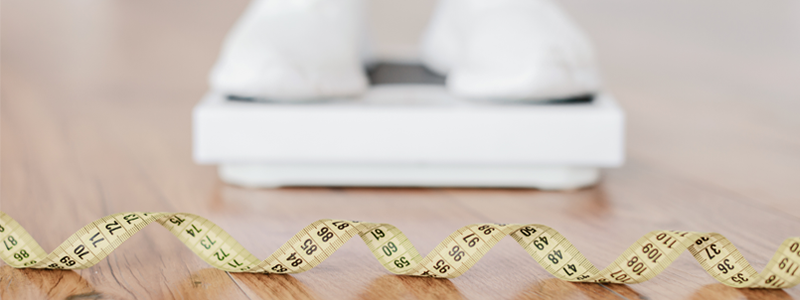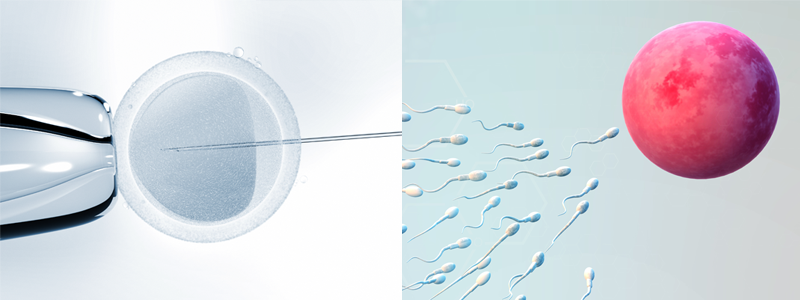Every year around 2000 children are conceived with the help of a donor – a donor who has given the gift of sperm, an egg or an embryo. Donors are motivated by many different factors: the experiences of family and friends when trying to start a family, the notion they are in a position to help someone who would otherwise not have the opportunity to have a baby or the idea they want to give someone the same gift of family they have enjoyed themself.
If you are considering choosing a sperm donor to help you create, or grow your family, you’re probably keen to gather as much information as possible. We understand that this is a big decision and you are likely to have questions, and maybe even concerns. Perhaps you have heard that there is a shortage of sperm or that there could be a waiting list, or you need reassurance about how your health and that of your baby will be protected throughout the process.
In fact, here in the UK, there is a range of options when it comes to choosing a sperm donor, and with our team on hand to support you at every stage of the process, you will have all the facts you need to make informed choices.
When do you need a sperm donor?
Sperm donors are an option for many couples and individuals looking to start a family. Whether you are a heterosexual couple facing male factor infertility or genetic challenges, a female same-sex couple or a woman hoping to be a single parent, sperm donation can be the key you need to complete your family.
Lesbian couples and single women
For lesbian couples trying for a baby, there are a range of fertility treatment options. Both intra-uterine insemination (IUI) and in-vitro fertilisation (IVF) are popular – the difference being that IUI involves monitoring the cycle until the egg is fully mature before injecting sperm into the womb at the time of ovulation; while with IVF, eggs are removed from the ovaries and fertilised outside the body and the resulting embryo being placed back in the womb. In either treatment, donor sperm is a must for lesbian couples. For single women, the treatment options are the same. If you are single or in a couple, and considering fertility treatment, you should weigh up the relative benefits of choosing either IUI or IVF, in combination with using donor sperm.
Heterosexual couples
There are a range of reasons why heterosexual couples may seek a sperm donor as part of their parenthood journey. In some cases, this is linked to male factor infertility – something that is a contributing factor in up to 50% of the 1 in 7 couples who have difficulty conceiving. Causes of male factor infertility can include problems with semen production or sperm mobility. For other couples, the issue may be that the male partner has a genetic condition or disease that the couple would like to avoid passing on to any children.
Finding a sperm donor
Whether you’re a couple, or embarking on fertility treatment solo, once you have taken the decision to go ahead with sperm donation, then the first question you are likely to have is how to find a sperm donor. Here once again you have a range of options open to you, from UK or overseas sperm banks to arranging a private donation with a friend or non-blood relation.
Sperm bank
In the UK, sperm donors donating to sperm banks are not paid, and donors have therefore donated altruistically because they wish to help others to start a family.
Since 2005 anyone conceived using donated sperm will be allowed to ask the Human Fertilisation and Embryology Authority (HFEA) for identifying information about the donor when they reach the age of 18, (or 16 if they are planning to marry). They will be able to find out who the donor is and certain details about them and may want to get in touch with them. Whilst the donor remains anonymous, any child born as a result of the donation will have the right to contact the donor through the clinic you use or the NHS once they are 18.
At CREATE, we can provide a variety of sperm donors. We also work with the Cyros International Sperm Bank and the European Sperm Bank. If you choose to order sperm direct from one of these banks, we will advise you on what is needed and they will ship the sperm to our clinic. If you want to source your sperm from a different sperm bank, we can accept sperm from an approved sperm bank. Don’t hesitate to contact us with any questions about the range of ways to choose sperm at CREATE.
How do sperm banks work when it comes to offering choices to potential parents?
When you begin your research, you will see that you are given the option of filtering available sperm using a variety of factors. Some of the factors prospective parents consider when they are thinking about choosing a donation from a sperm bank are the physical characteristics of the donor – for example, skin, eye or hair colour, as well as height and build. It’s also possible to filter for other characteristics such as religion and education level. Sperm banks in Europe and the US provide more information on their donors including blood type, descriptions from the donor and staff, education, interests, baby or adult photo, personality tests, family history and audio interview.
At CREATE, all of our sperm donors have to be in good health and are screened for sexually transmitted diseases and some genetic disorders. The sperm is also checked to ensure it is high quality before being approved for donation.
Using a friend as a sperm donor
For some people, the option of using a friend, or a non-blood relation is one they are drawn to when considering a sperm donor. Unlike choosing the sperm bank route, in this scenario, together with your donor you can choose how involved they will be with the life of your child, right from birth. If this is an option you are considering, then it is worth thinking through in detail how the arrangement will work – from how it might affect your relationship with the person you choose, to whether they will want to visit your child, take a say in any major decisions and even how they will be known to your child.
Private sperm donors
If you have an individual in mind, then just as with sperm bank donors, they should be screened at the clinic to ensure that they do not have a history of genetic conditions or diseases. The donation procedure should take place through a clinic, rather than at home, as there are risks associated with this method. When you use a clinic, you are protected because UK clinics are legally required to carry out health checks and offer everyone involved counselling.
If you choose to use a private sperm donor, then you will need to draw up an agreement to outline the legalities. If the woman being inseminated (not through intercourse) is married or in a civil partnership, with the partner’s consent to insemination, then the husband or wife is the legal guardian of the child if the couple is successful in getting pregnant.
There are complex decisions which you will need to consider carefully and we understand it can feel overwhelming. When you have your initial consultation with us we will go through everything in detail so you will be aware of your options, and understand the next steps whatever your situation. Our team is always happy to answer questions about the way choosing sperm works at CREATE, so don’t hesitate to get in touch if you need more information.
How your donor type might affect your IVF journey
If you choose to use a donor that you know or have chosen outside of the NHS or a clinic, there are more legal risks involved. It is worth carefully considering the emotional impact of using a friend’s sperm – thinking through how it would affect your life and that of your child should that relationship break down, and the legalities of parenthood and guardianship.
Choosing to use a sperm donor through the NHS or a clinic means there are minimal risks; though you will have no access to details that could reveal the donor’s identity (though your child will be identifying information about the donor when they reach 16 or 18).
Though at this stage of the process, your focus will naturally be on pregnancy and bringing your baby home, it’s important to also look to the future and think about how you will talk to your child about donor conception. There is a plethora of advice and support available about how to approach this in a positive way.
How much is sperm to buy?
It is illegal to pay someone in the UK to donate their sperm, although they can be reimbursed up to £35 per donation for any cost incurred to them. At CREATE, one vial of donor sperm costs £1,100. If you choose to buy sperm from elsewhere, costs can vary from sperm bank to sperm bank and be affected by factors such as whether you plan to use the sperm for treatment via IVF or via IUI, and the level of information you require about the donor. You can expect to see costs starting from several hundred pounds up to over a thousand pounds per ampoule. When you are choosing sperm, we advise obtaining MOT 10 (MOT is short for motility) or higher. Though we provide free shipping between our clinics, if you are sourcing sperm from elsewhere and working through how much it costs to buy sperm, it is worth factoring in shipping costs when you plan your treatment, as these will be charged separately. If you need more information on our prices for fertility treatment using sperm donors, don’t hesitate to get in touch.
When should you discuss your journey with the clinic
We understand the decision to begin fertility treatment, and considerations around a sperm donor are intensely personal. You should discuss your plans and any concerns you have at your initial consultation with us. Once we have created your personalised treatment plan, you will then have a treatment consultation where the nurse will discuss your treatment with you, and help to match you with a sperm donor. If you are ordering sperm from elsewhere, and planning on starting IVF, it’s worth knowing we will not start treatment until we have received it.
Where to store sperm and how much does it cost
When you are buying sperm, think about whether you will buy only what you need for this round of treatment, or whether you might like to store some for future rounds of treatment. In many cases, parents like the option of being able to try to conceive a sibling for their baby from the same donor. You can also ask to reserve sperm from the same donor.
We can store sperm samples whether they are donors from our bank or sourced from another at CREATE for one year, after which time you will need to pay an annual storage fee. Currently, storage costs £375 per year with us.
10 family limit
In the UK, sperm donors are subject to a strict 10-family limit. This means that a maximum of 10 families can be created through their donations. When you have a child with donor sperm, you will be assigned one of these family slots.
Although there is a limit to the number of families that can be created with each donor, there is no legal limit on the number of children each of these families can have. So, using donor sperm won’t stop you from having a large family if that’s what you would like.
If you plan to have more than one child, it may be useful to check the number of straws of sperm available for your selected donor.
A beautiful gift for you
The option to choose fertility treatment using donor sperm opens up the beautiful possibility of creating a family.
Choosing to use a sperm donor is a big decision but we want you to feel confident that we will ensure the choice is right for you, tailor your treatment and offer counselling so you are supported in the best possible way.
If you would like to start your treatment journey with CREATE Fertility, your first step will be to have an Advanced Transvaginal Ultrasound Scan at your local CREATE clinic. Following that you'll have Virtual Consultation with one of our highly experienced IVF consultants which you can do via Zoom from your own home. You'll then have time with your patient coordinator who is there to help support and guide you through the whole process.
If you think that using a sperm donor could be a good option for you, or you want to know anything else about how the process works, then get in touch with our team today – we are always happy to talk.






